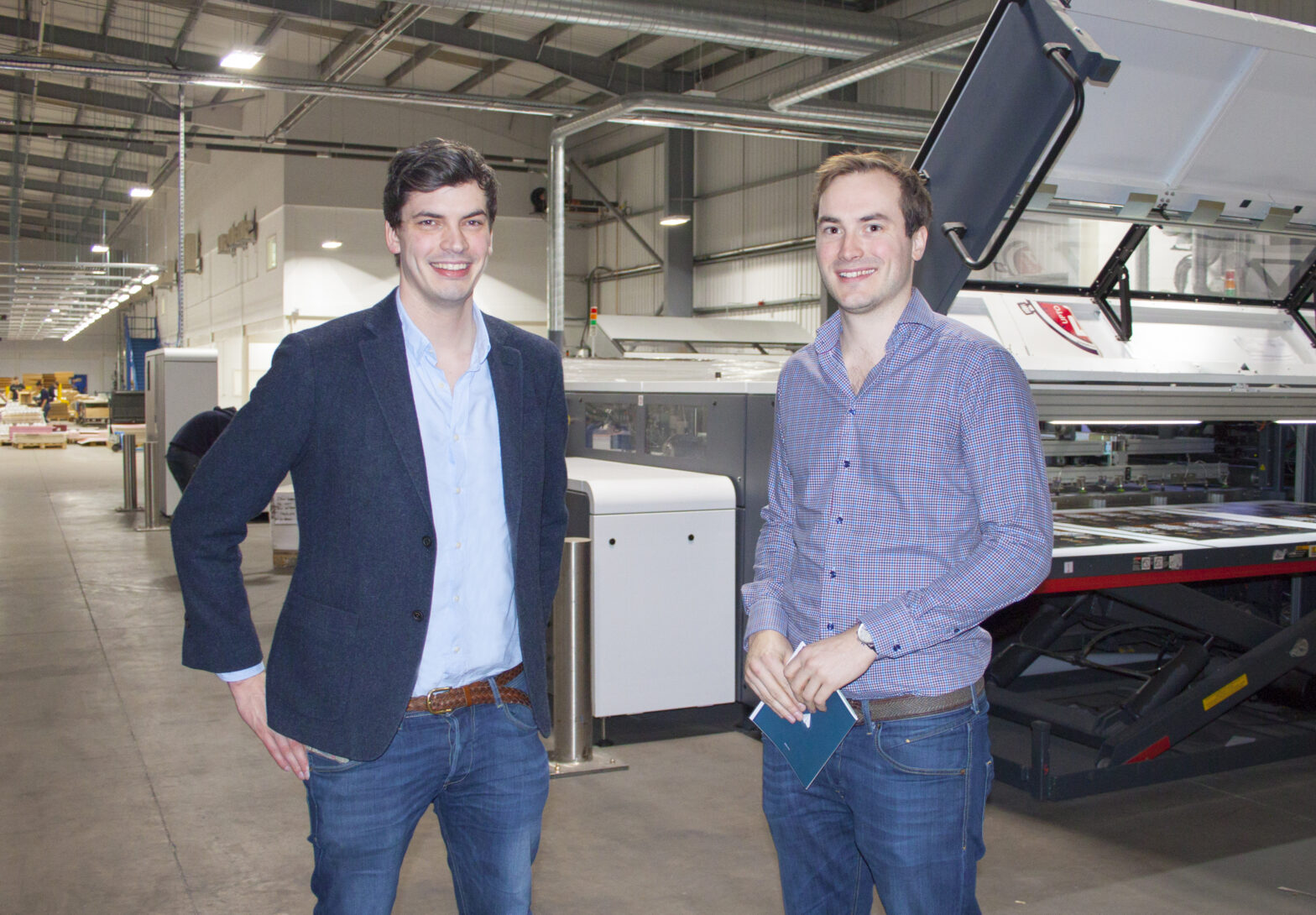Adam Carnell and James Kinsella were at university when they started printing company instantprint.co.uk during their final exams. Kinsella says, ‘As friends from school we’d always been involved in running small business ventures and at university-run student nights which meant buying flyers and posters for the events.
‘When we came to the end of university, we decided that this was our opportunity to go it alone and were looking for opportunities to go after.’
Having struggled purchasing print for the club nights, the pair were determined that this could be made easier for inexperienced buyers. This set the objective for their company, which was to make it as easy as possible for small and micro businesses to buy print online.
A lack of sector knowledge
When the duo initially started they had very little sector knowledge of either the print process or online retail. ‘On the print process side we were able to learn a lot from manufacturers who were supplying the equipment and we relied a lot of information/forums on the internet. At an early stage of the business we brought in a mentor who was very experienced on the finance side and was able to support our lack of knowledge in this area,’ Kinsella says.
In the beginning the pair faced lots of challenges due to inexperience; it also often difficult to get taken seriously, largely due to them both being 22 at the time. ‘We were told we should try something different,’ Kinsella says. ‘Just after we set up I vividly remember being told by a print finisher in Newcastle who had been in the industry for years that we were absolutely crazy to start in the print industry, he told us that if we have degrees we should be looking to get into a different industry.’
As the business has evolved the challenges have changed; when the business first set out the challenges revolved more around technical knowledge, whereas now they are more strategy based, Kinsella explains.
Standard operating procedures
As the business matured, the production facility grew into industrial printing, as opposed to commercial. ‘As such every operation in the business is now based around standard operating procedures that ensure processes are executed in the same way every time,’ Kinsella says. ‘This ensures that we are always able to achieve the same high quality result. Reviewing and updating these SOPs has been important to us in maintaining quality as the business grows as such at rapid rate.’
This year the business is set to turn over £30 million having achieved £20 million in the previous financial year. The business was awarded 50th position in the Sunday Times Fast Track 100 league table.
In terms of advice, Kinsella says, ‘There is a perception in some areas that print is in decline but the reality is that the print industry as a whole is changing very rapidly and it’s this rapid change that presents opportunities for innovative and agile businesses to start up.
‘I would recommend that anyone starting in the industry should keep an open mind about their original business model as it may be beneficial to change and meet an opportunity that arises. At the same time it’s important not to have too many opportunities in flight, pick your biggest or most achievable and put all energy into delivering those.’





